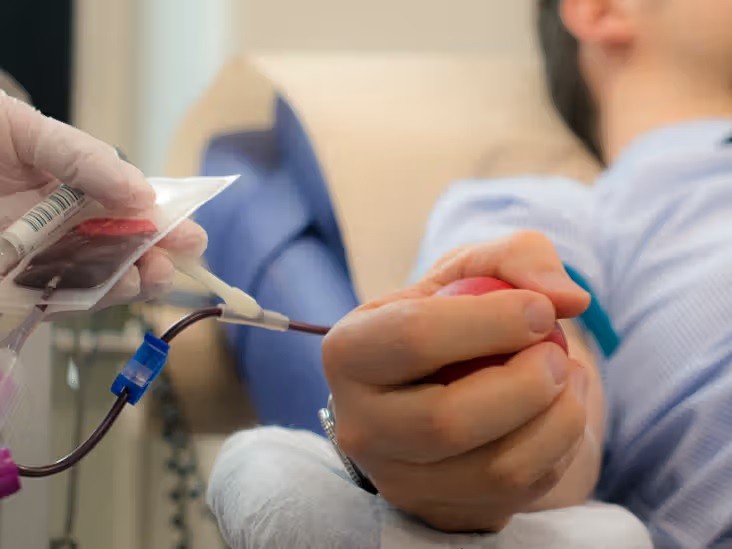27/01/2024
27/01/2024

NEW YORK, Jan 27: Amanda Fouch, a dedicated blood donor since her teenage years, reflects on her commitment to giving the precious gift of blood. Having participated in blood drives since high school, Fouch, now 42, emphasizes the joy of contributing to something that can potentially save lives. Her blood type, O negative, makes her a universal donor, further motivating her to share this vital resource.
The American Red Cross emphasizes the critical role blood donation plays in various medical treatments and life-saving procedures, aiding accident victims, new mothers facing complications, cancer patients, individuals undergoing surgeries and transplants, and those managing chronic diseases like sickle cell disease.
Amidst a blood shortage emergency in the US, Fouch emphasizes the urgency of the situation. The country is grappling with the lowest number of blood donors in the last two decades, heightening the need for individuals to step forward.
The Red Cross spokesperson stresses that blood, a resource that cannot be manufactured, relies on generous volunteers who dedicate about an hour of their time to donate. Every two seconds, someone in the US requires blood, making the need a pervasive concern that touches many lives.
Beyond the altruistic act of blood donation, the Red Cross reveals surprising health benefits for the donors themselves. When individuals check into a blood donation center, their vital signs, blood pressure, and heart rate are meticulously examined. Additionally, blood is tested for indicators such as anemia, iron deficiency, hepatitis, and HIV, providing an essential health screening.
Dr. Anjali Bharati, an emergency medicine physician, underlines the importance of these screenings. While they don't replace a comprehensive medical check-up, they can uncover conditions like elevated blood pressure, irregular heartbeat, or anemia.
Furthermore, each blood donation contributes to a secure online record, allowing donors to monitor their health statistics over time. This data becomes a valuable tool for individuals to observe trends and share vital information with healthcare providers.
Unexpectedly, donating blood may positively impact the donor's health. For individuals with high hemoglobin levels, a common concern associated with blood thickness and stickiness, regular blood donation can help reduce viscosity. Lowering hemoglobin contributes to improved heart attack and stroke risk and a decrease in blood pressure.
Beyond these physiological benefits, donating blood can aid individuals with hereditary conditions like hereditary hemochromatosis, where excess iron accumulates in the blood. Regular blood donation serves as a therapeutic measure by removing excess iron and improving overall health.
The act of donating blood extends beyond the physical realm, positively influencing mental health. Research indicates that helping others, such as through blood donation, can reduce stress, improve mood, and enhance self-esteem.
The Red Cross spokesperson emphasizes the emotional reward of knowing that each blood donation can potentially save lives. Fouch echoes this sentiment, highlighting the profound impact of the act of kindness.
In light of these benefits, individuals are encouraged to donate blood regularly. The process, which typically takes about an hour, involves an eight to ten-minute blood draw. Donors can contribute whole blood every eight weeks or opt for a Power Red donation, amounting to approximately two pints, every 16 weeks.
Before donating, individuals are advised to follow specific tips to ensure a smooth process, including staying hydrated, getting a good night's sleep, and having a meal before the appointment. Donors are encouraged to avoid alcohol and caffeine before and after donating and consider bringing a friend for support.
In a time of critical blood shortages, each blood donation becomes a beacon of hope and a lifeline for those in need. As Amanda Fouch and countless others continue their commitment to giving, they serve as invaluable contributors to the health and well-being of their communities.


